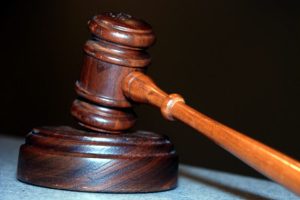Defense Moves For Mistrial in Backpage Trial
 PHOENIX — Prosecutors have laid out a case before a federal jury last week arguing that senior executives for the now-defunct Backpage.com knowingly permitted child prostitution advertisements on their classified ads website. Reginald Jones, an assistant U.S. Attorney, used opening remarks to argue that two of the named defendants, critically-acclaimed newspapermen and First Amendment advocates Michael Lacey and Jim Larkin, ran an enterprise where “they definitely knew that these were prostitution ads” and that “they didn’t shut down the website” and “they didn’t stop these ads from being posted.”
PHOENIX — Prosecutors have laid out a case before a federal jury last week arguing that senior executives for the now-defunct Backpage.com knowingly permitted child prostitution advertisements on their classified ads website. Reginald Jones, an assistant U.S. Attorney, used opening remarks to argue that two of the named defendants, critically-acclaimed newspapermen and First Amendment advocates Michael Lacey and Jim Larkin, ran an enterprise where “they definitely knew that these were prostitution ads” and that “they didn’t shut down the website” and “they didn’t stop these ads from being posted.”
According to the news commentary website Front Page Confidential (owned by both Lacey and Larkin), the claims from the prosecution are mere attempts to further demonize First Amendment-protected platforms on the internet and further the claim that all sex work needs to be eradicated. Counsel for the defendants has now moved for a mistrial based on salacious and misinformed claims outlined in the prosecution’s opening statement. In pre-trial motions, counsel for the defendants has argued that many of the ads found on Backpage, while potentially disturbing to some, are protected by the First Amendment. Further, as it deals with the comments of Jones in the immediate trial, the prosecution is relying on ice-thin evidence to further paint the defendants as the heads of an ostensible multi-million dollar prostitution brokerage.
Backpage served as an interactive computer service that facilitated the connections of third-party users. That facilitation, in most cases, is protected by Section 230 of the Communications Decency Act — a law often dubbed the First Amendment of the internet.
So, much of the claim that Lacey and Larkin worked to knowingly help directly the trafficking of children through Backpage is a strong sign of misinformation meant to sway jurors of the defendant’s guilt without hearing the exhibits from the defense and the examples of evidence gathered by the prosecution. Defense counsel also noted that the lead prosecutor, Jones, neglected to mention exhibits of evidence — some fifty pages the government says speaks to the guilt of Lacey and Larkin — in his opening statements. Thomas Bienert, representing Larkin, faulted the prosecution’s opening statement for mentioning that children were trafficked on Backpage. This is an issue the judge has warned the government to tread lightly on, given the explosive nature of the claim and how it could influence jurors.
“Jones dove right into the proverbial sewer, accusing Lacey, Larkin and their four co-defendants of crimes they have not committed and have not been charged with, the worst being child sex trafficking,” writes Stephen Lemmons, the editor of Front Page Confidential. “Backpage was a platform, much like Twitter or Facebook, to which the public could upload content, in this case, ads for things like car sales, apartments, jobs and adult-oriented ads, the publication of which has been deemed 100% legal by the courts.”
“Backpage charged users to post ads in legal categories,” Lemmons added. “It basically sold temporary space on an interactive website. It did not countenance children on the site or illegality of any kind, both banned by the site’s terms of use. And Backpage cooperated with law enforcement to such a degree that its absence has severely damaged law enforcement’s ability to protect endangered women and children.”













